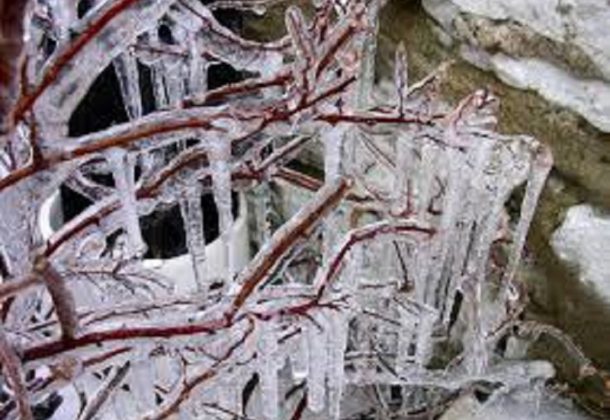Temps Go Down, Electric Bills Go Up

Winter is upon us. And as temperatures outside drop, electric bills rise. Southern Maryland Electric Cooperative reminds residents that heating and cooling costs are usually the biggest part of a customer’s electric bill, accounting for up to two-thirds of the usage. When it gets cold, energy usage increases. When energy usage increases, electric bills go up.
One of the key tips to saving energy over the winter months is to know the type of heating system you have and maintain it properly. Try the tips below for more ways to help you save energy and money during the winter months.
- Have an energy audit performed on your home to check for air leaks and to check insulation levels. A tight and well-insulated house will make you feel more comfortable and will reduce energy costs. SMECO offers the discounted Home Performance with Energy Star program, which takes a comprehensive look at your home to determine opportunities for savings.
- Weatherize your home to keep conditioned air in — air leaks are the biggest culprit in making homes uncomfortable — use weather stripping, caulk, spray foam, and clear plastic to seal drafts in the winter.Open curtains and blinds during the day to let the sun shine in. Use cellular blinds and insulated curtains to add to overall comfort and R-value.
- Limit the use of exhaust fans during winter months and prevent the house from becoming too dry.
- Insulate your attic to at least R-38. A clue to know how well insulated your attic is? If snow melts quickly from the roof, you don’t have enough insulation. A quick home energy check-up will assess insulation levels as part of the professional walk-through.
Remember that energy use varies based on many factors, including the amount of insulation and the type of heating system in the home. Adjusting your energy use on cold days can help control winter electric bills. Find more ways to save this winter at smeco.coop/save-energy-and-money.
The most common type of heating system in the local area is an air source heat pump.
A heat pump system transfers heat from one location to another. In the winter, heat from outside is pumped through the unit and distributed through the house.
Heat pump systems need to be serviced annually by an HVAC technician to operate at peak efficiency.
Here are some additional tips to get the most efficient service from your system:
- Clean or change filters once a month, or as recommended by the manufacturer. Never set thermostat to emergency heat unless the outdoor unit stops working, then call your HVAC technician immediately. Keep thermostat heat settings at one temperature. The recommended setting for winter is 68 degrees F.
- Heat pumps need to breathe, so keep all vents open and free from blockages inside the home.
- Keep the outdoor unit free from snow and ice.
- Keep plants, shrubs, and other obstacles at least two feet away from the outside unit.
- Replace older thermostats with programmable models — ask your HVAC technician which will work best.
Other common heating systems include gas or oil systems, which generate heat from a furnace or boiler. A furnace heats the air and blows it through heat ducts to the registers or grilles in the home. A boiler heats water, and the water is circulated through pipes to radiators or baseboards.
Getting the most efficient use out of a gas or oil system requires some maintenance, as well.
- Keep radiators or convectors clean.
- Replace or clean the filter on a forced-air system at least once a month.
- Check flue and chimney for possible obstruction and have cleaned, if necessary.
- Have oil furnaces serviced yearly by a trained technician.
- Have gas furnaces serviced every two years by a trained service technician.
Keep safety in mind, too. A poorly maintained or malfunctioning gas or oil furnace can produce dangerous levels of carbon monoxide. It is recommended that any home with a gas or oil system have a carbon monoxide detector.
Electric baseboard heating systems use resistance heating like electric stoves and space heaters. This is the most expensive form of heating, so use it as sparingly as possible. Turn off baseboard heaters in unoccupied rooms.
Knowing the type of heating system you have and maintaining it properly will help you save energy and money as the weather turns cold.
To learn more about SMECO, visit its Leader Member Page.























